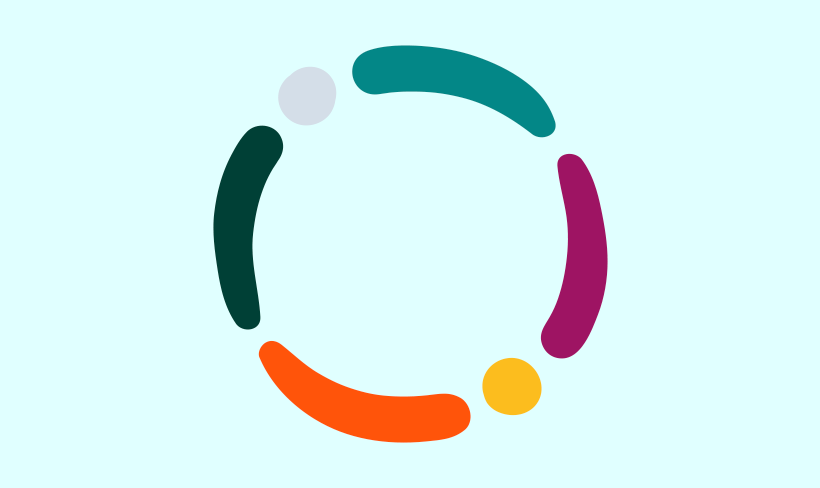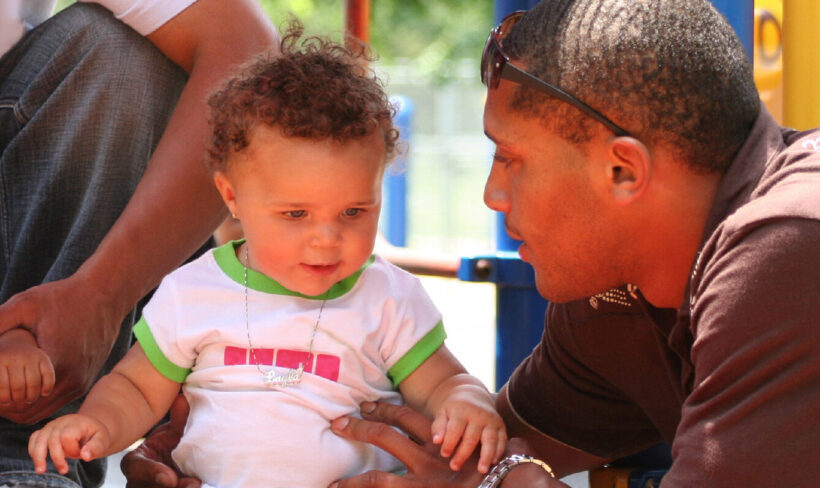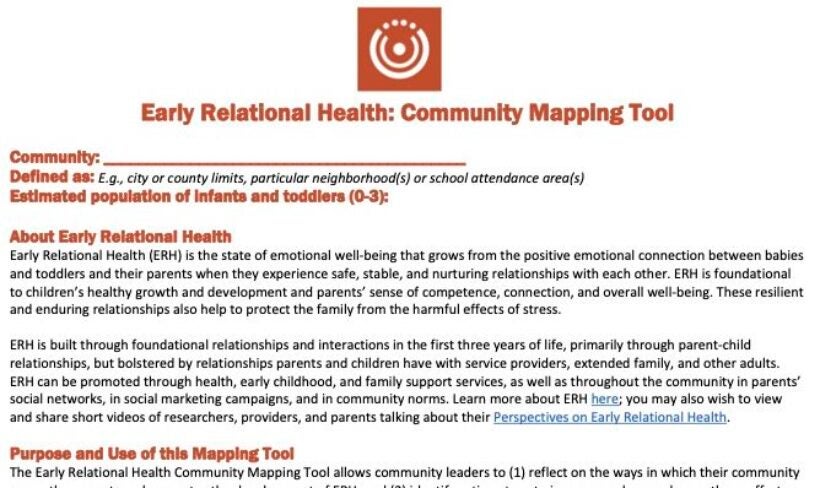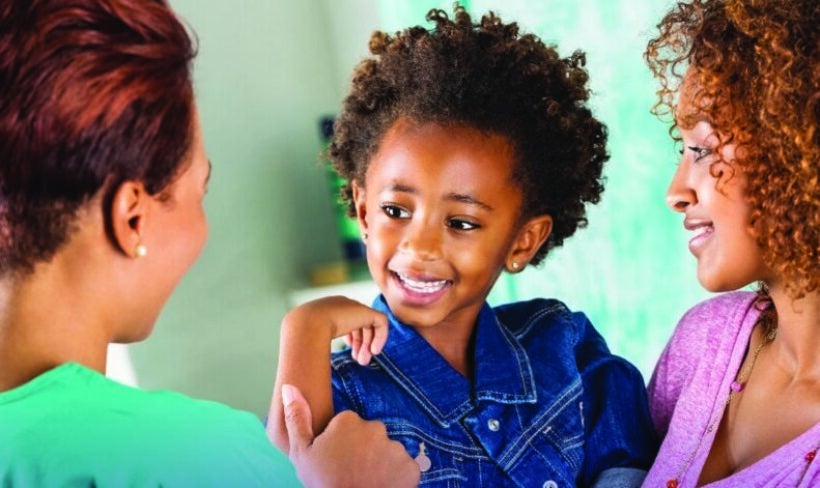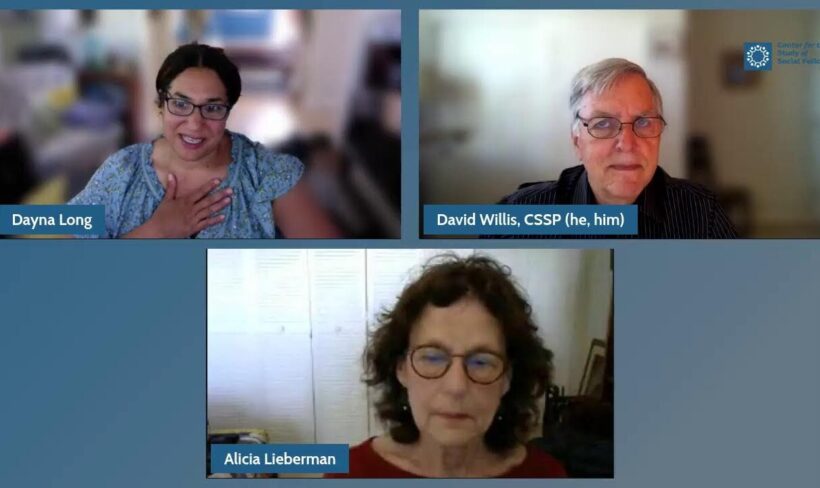In 2021, the American Academy of Pediatrics published a policy statement seeking to create a paradigm shift away from a focus on childhood toxic stress and toward the emphasis on early relational health (ERH) as a buffer for childhood adversity and promoter of life-course resilience.
Resources
Featured Resources
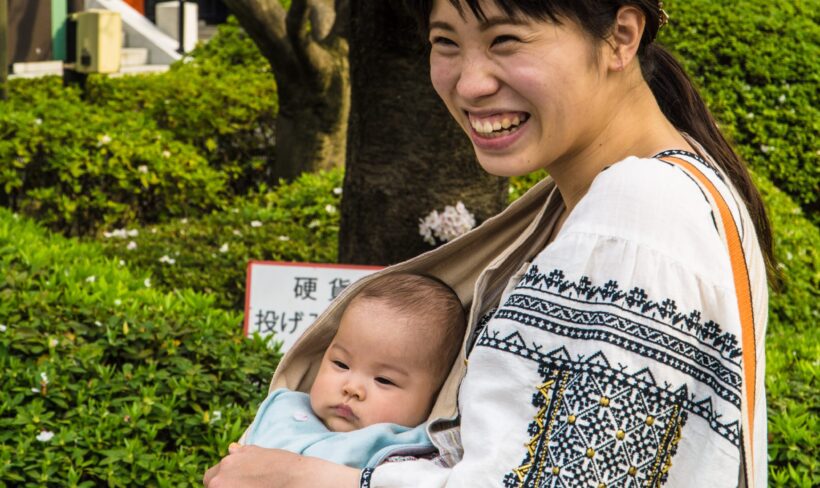
Early Relational Health: Innovations in child health for promotion, screening, and research
Relational experiences during infancy and early childhood are key drivers for building health, social emotional development, and learning capacities, each vital for wellbeing. The U.S. child health sectors share a commitment to universal health promotion, prevention and early intervention, and a growing enthusiasm for the research-affirmed primacy of caregiver-child interactions during the critical first 1000 days of life.
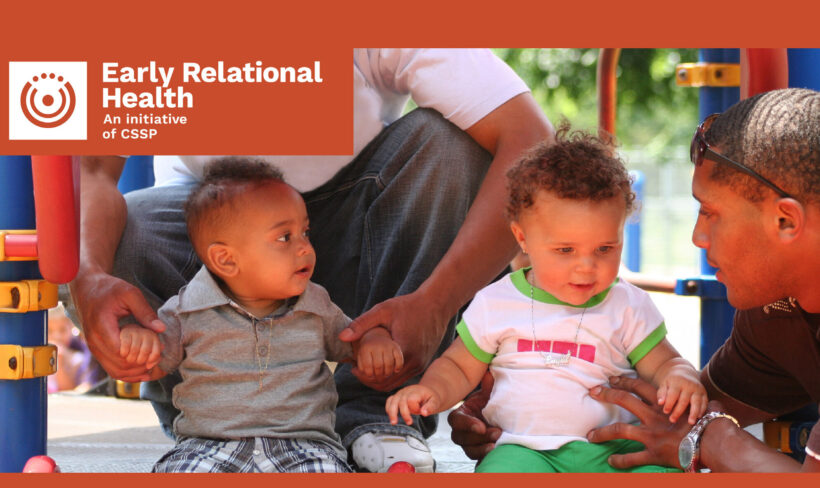
Policy Change to Promote Early Relational Health
The early and foundational relationships that babies and toddlers experience with their parents shape the health and well-being of two generations. This brief highlights opportunities to promote early relational health with policy change and investments, including with existing programs, pandemic funding, and pending legislation in Congress.

Building relationships: Framing Early Relational Health
This strategic brief, produced in collaboration with the FrameWorks Institute, offers a comprehensive framing strategy to help shift public attention to and understanding about Early Relational Health.
Browse All Resources
Early Relational Health e-Newsletter.
Early Relational Health e-Newsletter.
This brief highlights opportunities to promote early relational health with policy change and investments, including with existing programs, pandemic funding, and pending legislation in Congress.
Allows community leaders to (1) reflect on the ways in which their community currently supports and promotes the development of ERH, and (2) identify action steps to improve and expand upon those efforts.
Early Relational Health e-Newsletter.
Contains a wealth of materials to define early relational health (ERH), advocacy tools, and resources to build quality community partnerships and creating an equitable office environment.
The 13th Willis & Friends livestream focused on California Governor Gavin Newsom’s early childhood vision that includes comprehensive child development programs for education, health, and strengthening families.
Early Relational Health e-Newsletter.

Join the Nurture Connection Movement
Community by community, we are building a networked and engaged movement in partnership with parents and families.
Through our collective commitment and effort, we can make sure that every child is cared for and valued, every family is supported and heard, and every community is made stronger through positive and enduring emotional connection.
